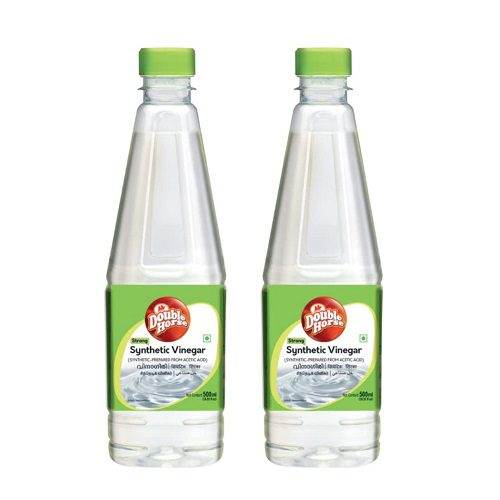Vinegar is a versatile ingredient that has been used in cooking and food preservation for centuries. Traditionally, vinegar is made through the fermentation of alcoholic liquids such as wine, cider, or malt. However, in recent years, synthetic vinegar has gained popularity as an alternative option. This article aims to explore the suitability of synthetic vinegar for cooking, addressing its nutritional value, taste, safety, and quality considerations.
What Is Synthetic Vinegar?
Synthetic vinegar, also known as distilled vinegar, is made through a chemical process rather than natural fermentation. It is typically derived from acetic acid, which is produced by the fermentation of ethanol or other suitable substances. While it may lack the complexity and depth of flavor found in naturally fermented vinegars, synthetic vinegar offers convenience and consistency in terms of taste and acidity.
Nutritional Value and Health Benefits of Synthetic Vinegar
When it comes to nutritional value, synthetic vinegar and natural vinegar share similar characteristics. Both types generally have low calorie and fat content, making them suitable for individuals aiming for a healthy diet. Additionally, vinegar, including the synthetic variety, offers certain health benefits. It has been associated with aiding digestion, regulating blood sugar levels, and promoting satiety, among other potential advantages. However, it’s important to note that the health benefits of vinegar are not exclusive to synthetic vinegar and can be obtained from natural vinegars as well.

Cooking Applications and Taste Comparison
Synthetic vinegar is widely used in cooking due to its mild flavor and clear appearance. It is particularly popular in dishes where a subtle tanginess is desired without overpowering other flavors. Common applications of synthetic vinegar include salad dressings, marinades, pickling, and various sauces. It can also be used for baking, as the mild acidity helps activate baking soda or powder. However, in recipes that call for a more pronounced vinegar flavor, such as certain dressings or sauces, natural vinegars with their distinct flavors may be preferred.
When comparing the taste of synthetic and natural vinegars, the latter often offer a more complex and nuanced profile. Natural vinegars, such as balsamic, apple cider, or red wine vinegar, undergo fermentation processes that result in unique flavors. These vinegars can enhance the taste of dishes and add depth to the overall flavor profile. If a recipe specifically calls for a particular vinegar, it is best to use the recommended type to achieve the desired taste.
Safety and Quality Considerations
While synthetic vinegar is generally safe for consumption, it is crucial to consider the quality and sourcing of the product. Due to the chemical nature of its production, it is essential to choose synthetic vinegar from reputable brands or manufacturers to ensure it meets safety standards. Look for products that are certified and regulated by food authorities to ensure consistent quality.
Another consideration is the presence of impurities in synthetic vinegar. Since natural vinegars are made through fermentation, they may contain trace elements of nutrients or beneficial bacteria. Synthetic vinegar lacks these natural components, which may be a disadvantage for individuals seeking the potential health benefits associated with fermented foods. However, it’s worth noting that these benefits can also be obtained from other fermented food sources in one’s diet.

Making Informed Choices: Synthetic vs. Natural Vinegar
When deciding between synthetic and natural vinegar for cooking, it ultimately comes down to personal preference and the specific requirements of the recipe. Synthetic vinegar offers convenience, consistency, and a milder flavor suitable for many culinary applications. It is particularly useful when a recipe calls for a neutral acidity that won’t overpower other ingredients.
On the other hand, natural vinegars provide unique flavors, additional health benefits, and a more authentic culinary experience. They can be used to elevate dishes and offer a distinct taste profile. If you appreciate the complexity and depth that natural vinegars bring to your cooking, it may be worth exploring different varieties and experimenting with their flavors.

Summary
Overall, synthetic vinegar is suitable for cooking due to its mild flavor, convenience, and consistent acidity. It can be used in various recipes, particularly those that require a subtle tanginess without overpowering other ingredients. However, individuals who value the complexity of flavors and potential health benefits associated with natural vinegars may prefer to incorporate them into their culinary repertoire. Ultimately, the choice between synthetic and natural vinegar depends on personal preferences, desired taste profiles, and specific recipe requirements.

